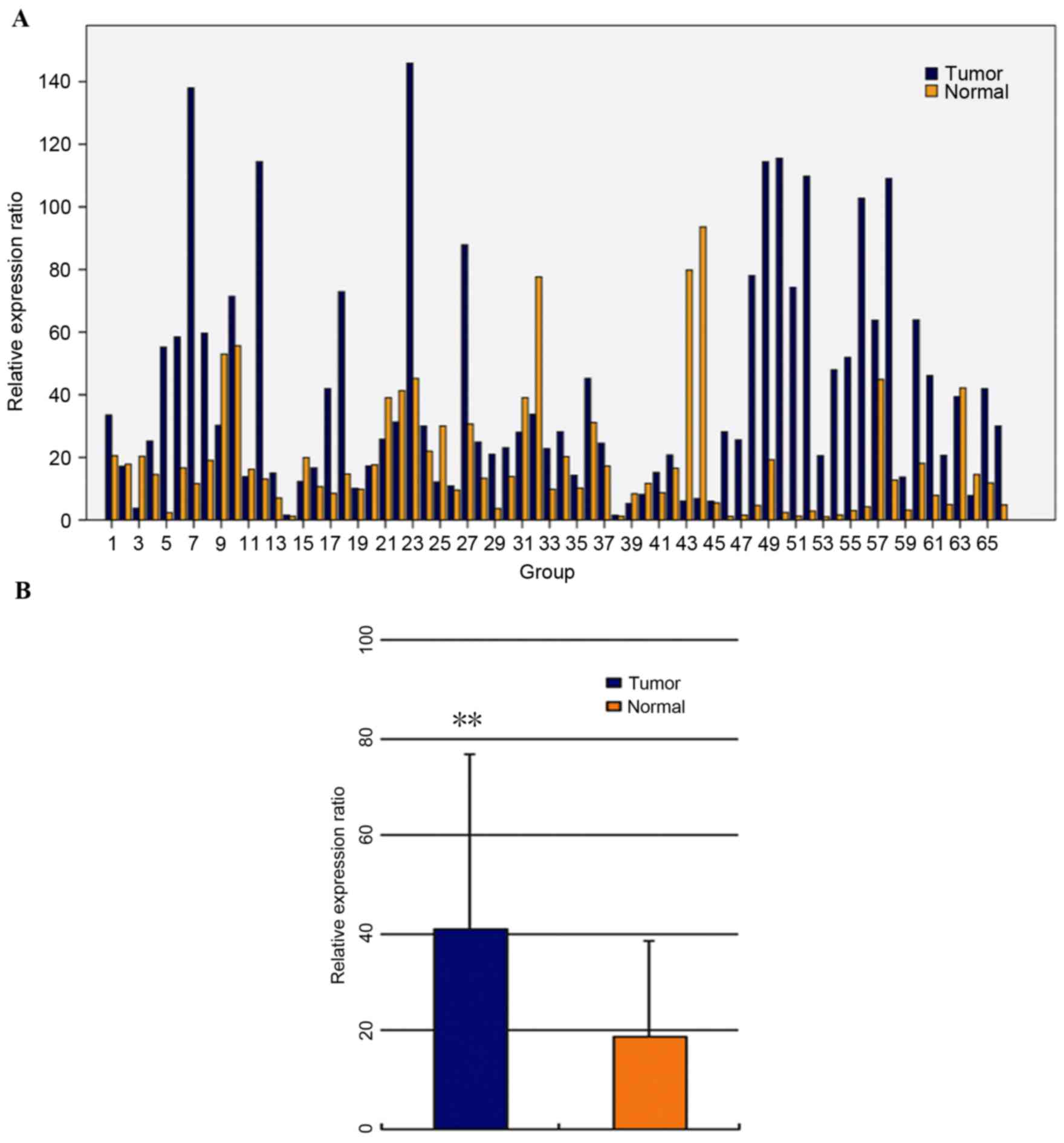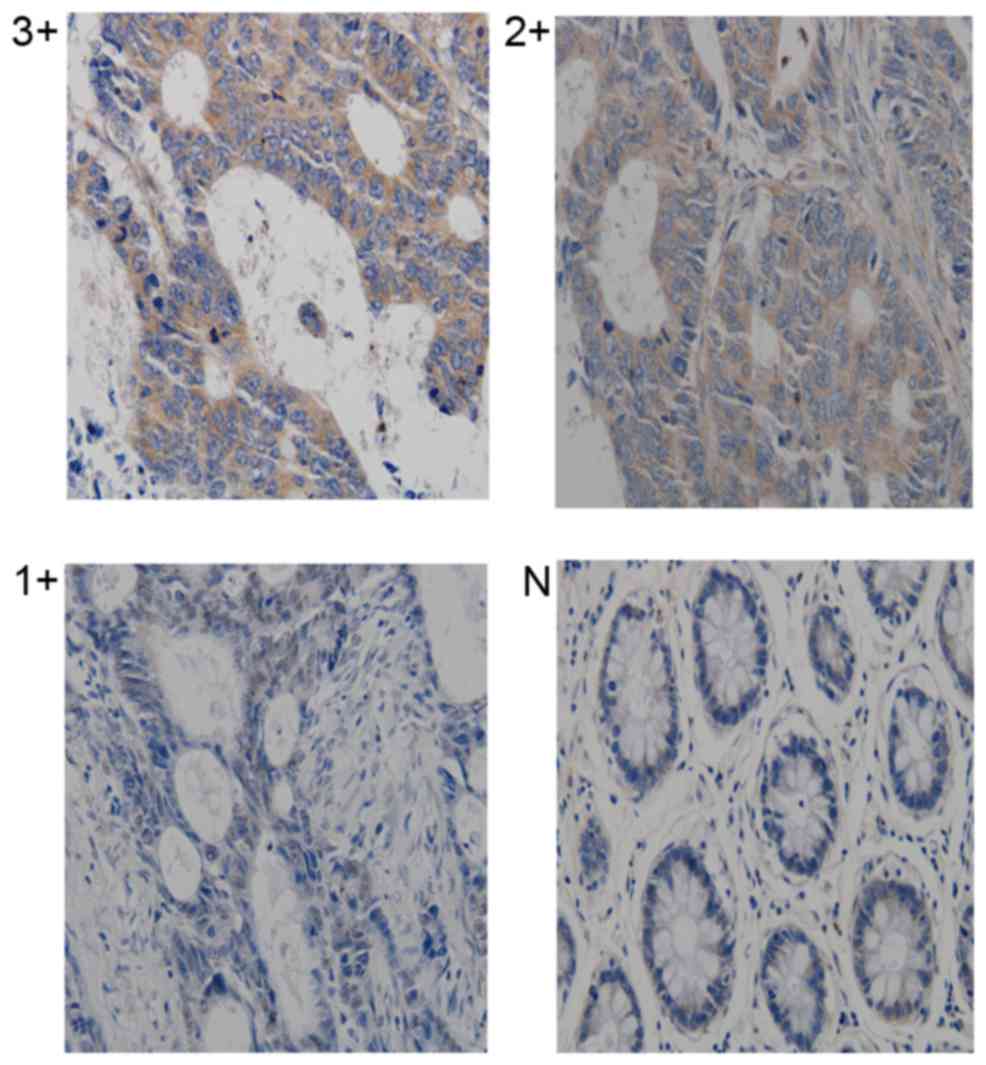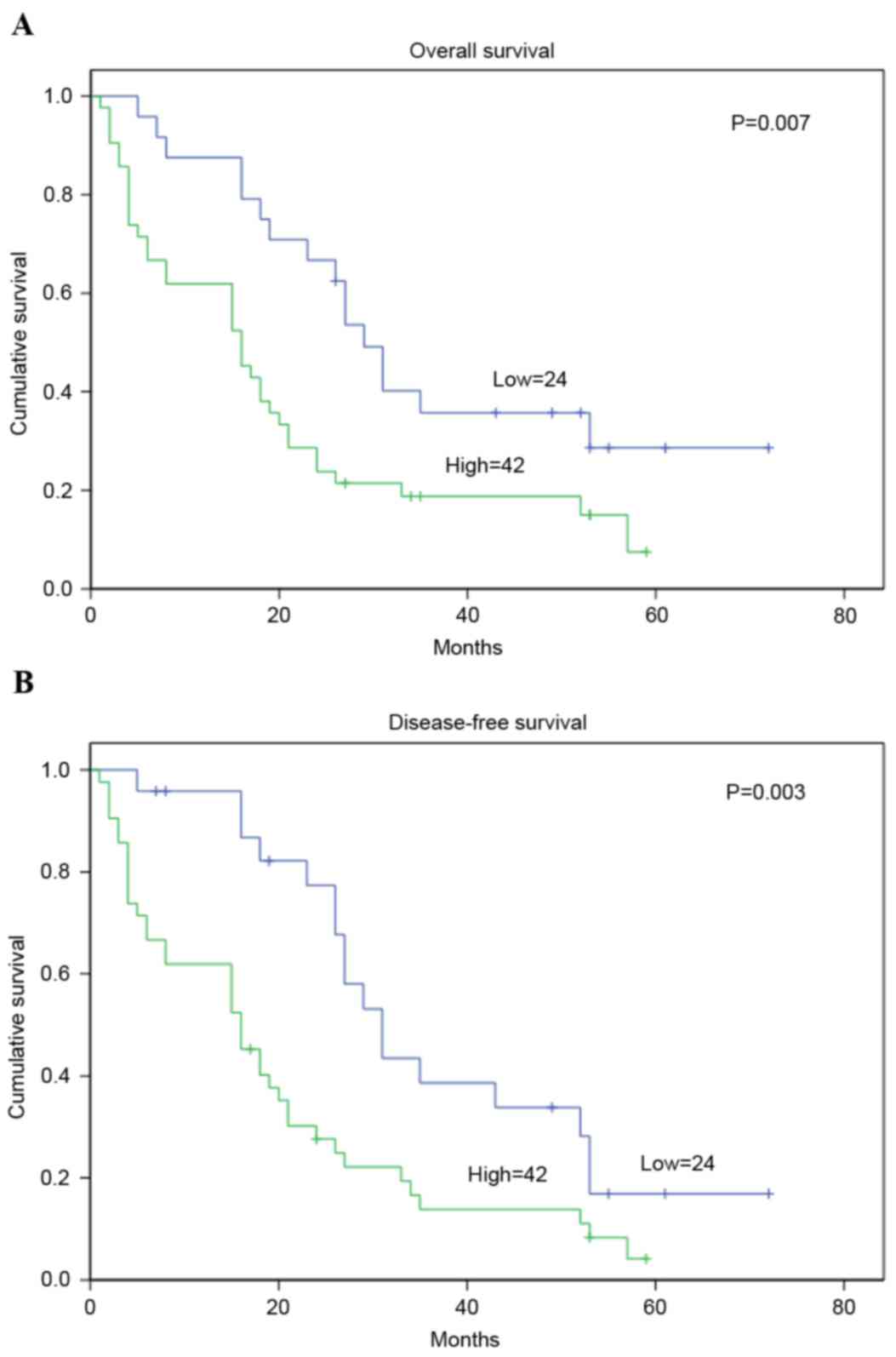|
1
|
Ferlay J, Parkin DM and Steliarova-Foucher
E: GLOBOCAN 2008, Cancer incidence and mortality worldwide. IARC
cancer base No. 10International Agency for Research on Cancer.
Lyon: 2010 http://www.iarc.fr/en/media-centre/iarcnews/2010/globocan2008.phpAccessed.
January 5–2010, View Article : Google Scholar : PubMed/NCBI
|
|
2
|
Ries LAG, Melbert D, Krapcho M, Stinchcomb
DG, Howlader N, Horner MJ, Mariotto A, Miller BA, Feuer EJ,
Altekruse SF, et al: SEER cancer statistics review, 1975–2005. 2008
National Cancer Institute; Bethesda, MD: http://seer.cancer.gov/csr/1975_2005/Accessed.
April 17–2008
|
|
3
|
Chung YF, Eu KW, Machin D, Ho JM, Nyam DC,
Leong AF, Ho YH and Seow-Choen F: Young age is not a poor
prognostic marker in colorectal cancer. Br J Surg. 85:1255–1259.
1998. View Article : Google Scholar : PubMed/NCBI
|
|
4
|
Cusack JC, Giacco GG, Cleary K, Davidson
BS, Izzo F, Skibber J, Yen J and Curley SA: Survival factors in 186
patients younger than 40 years old with colorectal adenocarcinoma.
J Am Coll Surg. 183:105–112. 1996.PubMed/NCBI
|
|
5
|
Piekny A, Werner M and Glotzer M:
Cytokinesis: Welcome to the Rho zone. Trends Cell Biol. 15:651–658.
2005. View Article : Google Scholar : PubMed/NCBI
|
|
6
|
Mishima M, Kaitna S and Glotzer M: Central
spindle assembly and cytokinesis require a kinesin-like
protein/RhoGAP complex with microtubule bundling activity. Dev
Cell. 2:41–54. 2002. View Article : Google Scholar : PubMed/NCBI
|
|
7
|
Mishima M, Pavicic V, Grüneberg U, Nigg EA
and Glotzer M: Cell cycle regulation of central spindle assembly.
Nature. 430:908–913. 2004. View Article : Google Scholar : PubMed/NCBI
|
|
8
|
Somers WG and Saint R: A RhoGEF and Rho
family GTPase-activating protein complex links the contractile ring
to cortical microtubules at the onset of cytokinesis. Dev Cell.
4:29–39. 2003. View Article : Google Scholar : PubMed/NCBI
|
|
9
|
Yuce O, Piekny A and Glotzer M: An
ECT2-centralspindlin complex regulates the localization and
function of RhoA. J Cell Biol. 170:571–582. 2005. View Article : Google Scholar : PubMed/NCBI
|
|
10
|
Zhao WM and Fang G: MgcRacGAP controls the
assembly of the contractile ring and the initiation of cytokinesis.
Proc Natl Acad Sci USA. 102:13158–13163. 2005. View Article : Google Scholar : PubMed/NCBI
|
|
11
|
Solski PA, Wilder RS, Rossman KL, Sondek
J, Cox AD, Campbell SL and Der CJ: Requirement for C-terminal
sequences in regulation of Ect2 guanine nucleotide exchange
specificity and transformation. J Biol Chem. 279:25226–25233. 2004.
View Article : Google Scholar : PubMed/NCBI
|
|
12
|
Chalamalasetty RB, Hümmer S, Nigg EA and
Silljé HH: Influence of human Ect2 depletion and overexpression on
cleavage furrow formation and abscission. J Cell Sci.
119:3008–3019. 2006. View Article : Google Scholar : PubMed/NCBI
|
|
13
|
Saito S, Liu XF, Kamijo K, Raziuddin R,
Tatsumoto T, Okamoto I, Chen X, Lee CC, Lorenzi MV, Ohara N and
Miki T: Deregulation and mislocalization of the cytokinesis
regulator Ect2 activate Rho signaling pathways leading to malignant
transformation. J Biol Chem. 279:7169–7179. 2004. View Article : Google Scholar : PubMed/NCBI
|
|
14
|
Tatsumoto T, Xie X, Blumenthal R, Okamoto
I and Miki T: Human ECT2 is an exchange factor for Rho GTPases,
phosphorylated in G2/M phases, and involved in cytokinesis. J Cell
Biol. 147:921–928. 1999. View Article : Google Scholar : PubMed/NCBI
|
|
15
|
Lin J, Qiu M, Xu R and Dobs AS: Comparison
of survival and clinicopathologic features in colorectal cancer
among African American, Caucasian and Chinese patients treated in
the United States: Results from the surveillance epidemiology and
end results (SEER) database. Oncotarget;. 6:33935–33943. 2015.
View Article : Google Scholar
|
|
16
|
Kim JW, Shin MK and Kim BC:
Clinicopathologic impacts of poorly differentiated cluster-based
grading system in colorectal carcinoma. J Korean Med Sci. 30:16–23.
2015. View Article : Google Scholar
|
|
17
|
Wolfe BA, Takaki T, Petronczki M and
Glotzer M: Polo-like kinase 1 directs assembly of the HsCyk-4
RhoGAP/Ect2 RhoGEF complex to initiate cleavage furrow formation.
PLoS Bio. 7:e10001102009. View Article : Google Scholar
|
|
18
|
Engers R, Mueller M, Walter A, Collard JG,
Willers R and Gabbert HE: Prognostic relevance of Tiam1 protein
expression in prostate carcinomas. Br J Cancer. 95:1081–1086. 2006.
View Article : Google Scholar
|
|
19
|
Livak KJ and Schmittgen TD: Analysis of
relative gene expression data using real-time quantitative PCR and
the 2(-Delta Delta C(T)) method. Methods. 25:402–408. 2001.
View Article : Google Scholar
|
|
20
|
Miki T, Smith CL, Long JE, Eva A and
Fleming TP: Oncogene ect2 is related to regulators of small
GTP-binding proteins. Nature. 362:462–465. 1993. View Article : Google Scholar
|
|
21
|
Hirata D, Yamabuki T, Miki D, Ito T,
Tsuchiya E, Fujita M, Hosokawa M, Chayama K, Nakamura Y and Daigo
Y: Involvement of epithelial cell transforming sequence-2
oncoantigen in lung and esophageal cancer progression. Clin Cancer
Res. 15:256–266. 2009. View Article : Google Scholar
|
|
22
|
Sano M, Genkai N, Yajima N, Tsuchiya N,
Homma J, Tanaka R, Miki T and Yamanaka R: Expression level of ECT2
proto-oncogene correlates with prognosis in glioma patients. Oncol
Rep. 16:1093–1098. 2006.
|
|
23
|
Bui DA, Lee W, White AE, Harper JW,
Schackmann RC, Overholtzer M, Selfors LM and Brugge JS: Cytokinesis
involves a nontranscriptional function of the Hippo pathway
effector YAP. Sci Signal. 9:ra232016. View Article : Google Scholar
|
|
24
|
Woik N, Dietz CT, Schäker K and Kroll J:
Kelch-like ECT2-interacting protein KLEIP regulates late-stage
pulmonary maturation via Hif-2α in mice. Dis Model Mech. 7:683–692.
2014. View Article : Google Scholar
|
|
25
|
Hayashi M, Inoue Y, Komeda K, Shimizu T,
Asakuma M, Hirokawa F, Miyamoto Y, Okuda J, Takeshita A, Shibayama
Y and Tanigawa N: Clinicopathological analysis of recurrence
patterns and prognostic factors for survival after hepatectomy for
colorectal liver metastasis. BMC Surg. 10:272010. View Article : Google Scholar
|


















